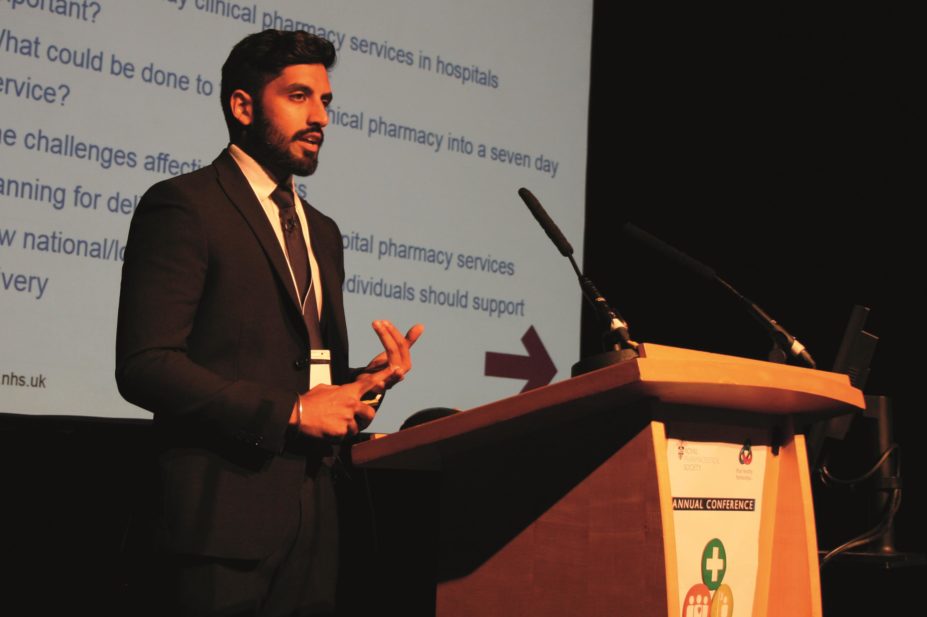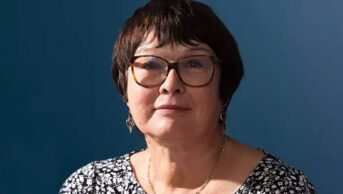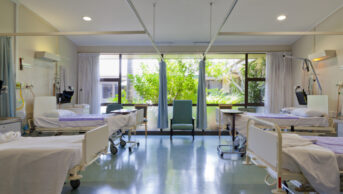
Emma Page / The Pharmaceutical Journal
Unnecessary variation in hospital pharmacy services on weekends can be avoided through optimal use of medicines, technology and workforce, according to an NHS report published on 5 September 2016.
Rahul Singal, clinical fellow to the chief pharmaceutical officer at NHS England, launched the report, ‘Transformation of seven day clinical pharmacy services in acute hospitals’, at the Royal Pharmaceutical Society’s (RPS) annual conference in Birmingham.
“We know clinical pharmacy services are underutilised at weekends and that is for a host of reasons including workforce, capability and capacity. This report sets out for the first time how we can improve the patient experience — that’s the number one thing here,” Singal told the conference. “Supply and access to medicines in hospitals seems to be the biggest challenge to improving weekend care.”
The report, authored by the office of NHS England’s chief pharmaceutical officer, offers 13 recommendations for how hospital pharmacy clinical services can be strengthened. Six of these are aimed at national bodies, including NHS England, Health Education England (HEE) and the RPS, all of whom have agreed to support the recommendations, according to Singal. The remaining seven are aimed at hospital chief pharmacists, commissioners and other pharmacy professionals.
The report calls on HEE and hospital chief pharmacists to develop work-based training to allow all pharmacy staff to maintain a generalist clinical competency. It also wants chief pharmacists to ensure all patients admitted through urgent and emergency routes and certain other high risk patients receive a clinical medication review promptly.
Other recommendations state that hospital chief pharmacists should consider terms and conditions when employing new staff that enables work over a seven-day period; hospital chief pharmacists, with support from HEE, should aim to ensure clinical supervision for junior clinical pharmacy staff is of the same standard at weekends as during the week; commissioners should pursue opportunities to support access to expertise in medicines seven days a week by co-commissioning clinical pharmacist posts, some of which should be at consultant-level between hospitals and primary care services, in both generalist and specialist areas.
“We’re not going to be in any position soon to have every hospital across the country having a consultant pharmacist in every speciality, but this is a way forward to ensure patients get access to a speciality when they need to,” Singal noted.
The report also reiterates the ten clinical standards first published in the review from NHS England’s medical director Bruce Keogh in 2013, four of which are regarded as a priority: time to consultant review; access to diagnostics; access to consultant-directed interventions; and ongoing review. “The ambition and the vision is that 100% of the population should have access to hospital services that meet [these] four … priority standards by 2020,” Singal explained.
Sandra Gidley, chair of the RPS English Pharmacy Board, comments: “There is a clinical gap in pharmacy input at weekends. However, this cannot be managed within current resources and staffing levels. It is unrealistic to expect five day resources to cover a seven-day service that is exactly the same on all days of the week. Priority must be given to those services that will enhance and speed the patient journey.”
The report has been endorsed by Keogh, along with Keith Ridge, England’s chief pharmaceutical officer, and Kathy McLean, medical director for NHS Improvement. It follows the Carter review, published in February 2016, which identifies ways of improving efficiencies in acute NHS hospitals.


